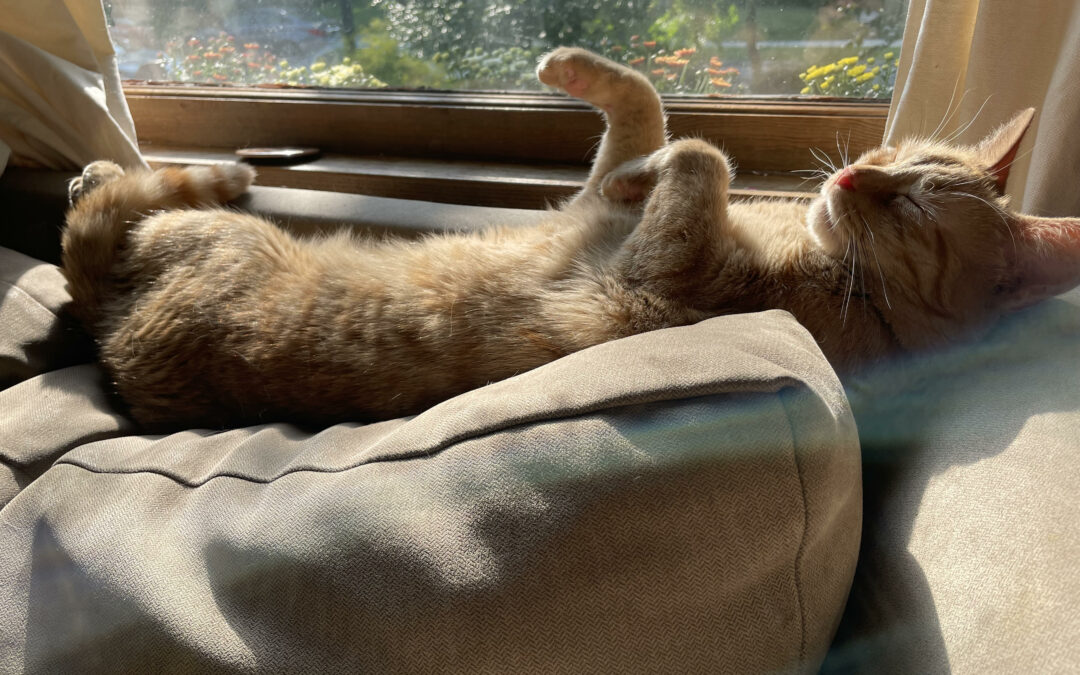Creating the Purrfect Litterbox Setup
Cats can be notoriously fastidious about where they go to the bathroom. From kittenhood, they have a natural instinct to urinate and defecate in a sandy area that allows them to bury their waste. Most of the time, if provided an appropriate litter box, cats will use their box reliably, but some cats have higher standards or are more particular than others. House soiling, or urinating and/or defecating outside of a litter box, is a difficult behavior to manage in cats. Here are a few suggestions to set your cats up for success with their litter box habits.
- Make sure to provide enough litter boxes for the number of cats in your home. The minimum number of boxes recommended is one box per cat plus one (so, 2 boxes for a single cat, 3 boxes for two cats, etc). Each box should be in a different location. Two boxes located right next to each other are like having two stalls in a single bathroom rather than having two separate bathrooms. If you have a multi-level house, each floor of the house should have at least one box.
- Boxes should be scooped daily and fully emptied and washed every 2 to 4 weeks depending on what type of cat litter you are using.
- Plastic boxes should be completely replaced once a year, since plastic will eventually absorb odor no matter how fastidious you are about cleaning them.
- In general, cats have the following preferences for litter boxes:
- Open boxes are preferred over covered boxes
- Clumping litter is preferred over non-clumping litter
- Unscented litter is preferred over scented litter
- Quiet spaces are preferred over noisy spaces or spaces with sudden loud sounds such as near a furnace
- A box that is at least 1.5 times the length of the cat’s body is preferred over a smaller box
- A box located away from food and water sources is preferred to one located near food and water
If your cat has always been reliable about using their litter box and then suddenly starts going outside their box, it’s always a good idea to schedule a vet visit to screen for medical causes such as a urinary tract infection, bladder stones, or organ dysfunction such as kidney disease before assuming that it is a behavioral problem. Here’s to making sure our companions always think inside the box!
Fall is Leptospirosis Season
As we head into fall, now is a good time to refresh yourself about the infectious disease called leptospirosis. Leptospirosis (also called “lepto”) is a bacterial infection that is carried by a wide variety of wildlife, including rats, mice, squirrels, opossums, and raccoons. Infected wildlife shed the bacteria in their urine, which can then contaminate soil and water. Dogs are very susceptible to leptospirosis, while cats are relatively resistant to infection. Humans can also be infected by leptospirosis, and one of the most common sources of infection would be exposure to the urine of a dog who is infected. Leptospirosis is most commonly transmitted to dogs during periods of high rainfall and in warm, moist environments. These conditions allow the bacteria Leptospira to thrive in water sources like ponds, puddles, and moist soil. Therefore, transmission is more common during:
- Late summer to early fall: In temperate regions, these are the months with the most rainfall and warm weather.
- During or after heavy rainfall: Flooding or stagnant water sources increase the chances of dogs coming into contact with contaminated water.
Dogs are most at risk when they drink from or swim in contaminated water or come into contact with the urine of infected animals (such as rodents or wildlife). Even suburban or urban environments with frequent rain or water pooling can pose risks for exposure.
Symptoms of leptospirosis include excessive drinking and/or urination, vomiting, diarrhea, decreased appetite, and/or yellowing of the eyes or skin (jaundice). You can protect your dog against leptospirosis by preventing them from drinking and swimming in stagnant water. Leptospirosis is also preventable by vaccination. If you have additional questions about leptospirosis, visit the AVMA’s resource about leptospirosis here.
Upcoming Clinic Closures
Monday, November 11th: Early Closure at 4 pm
Thursday, November 28th: Thanksgiving Day

